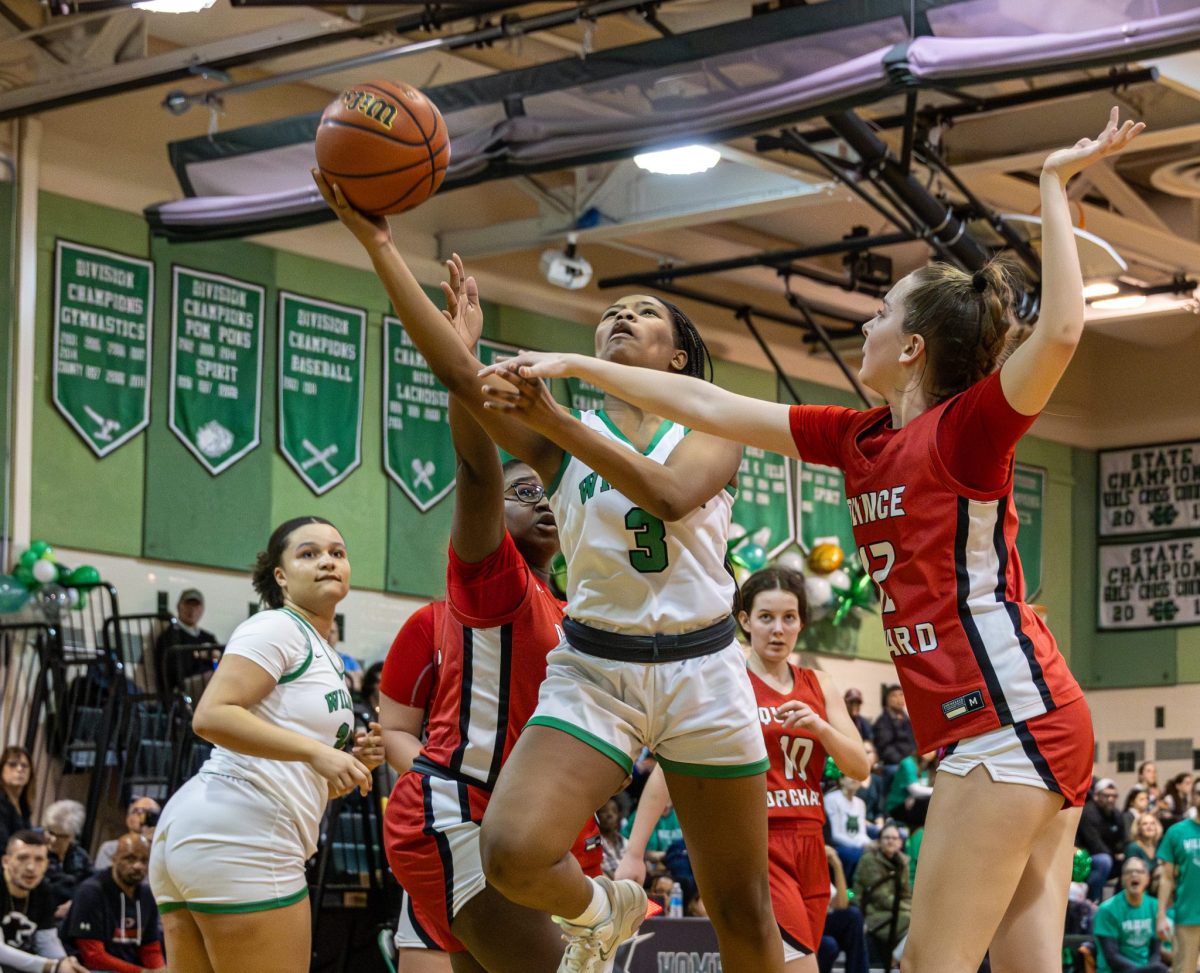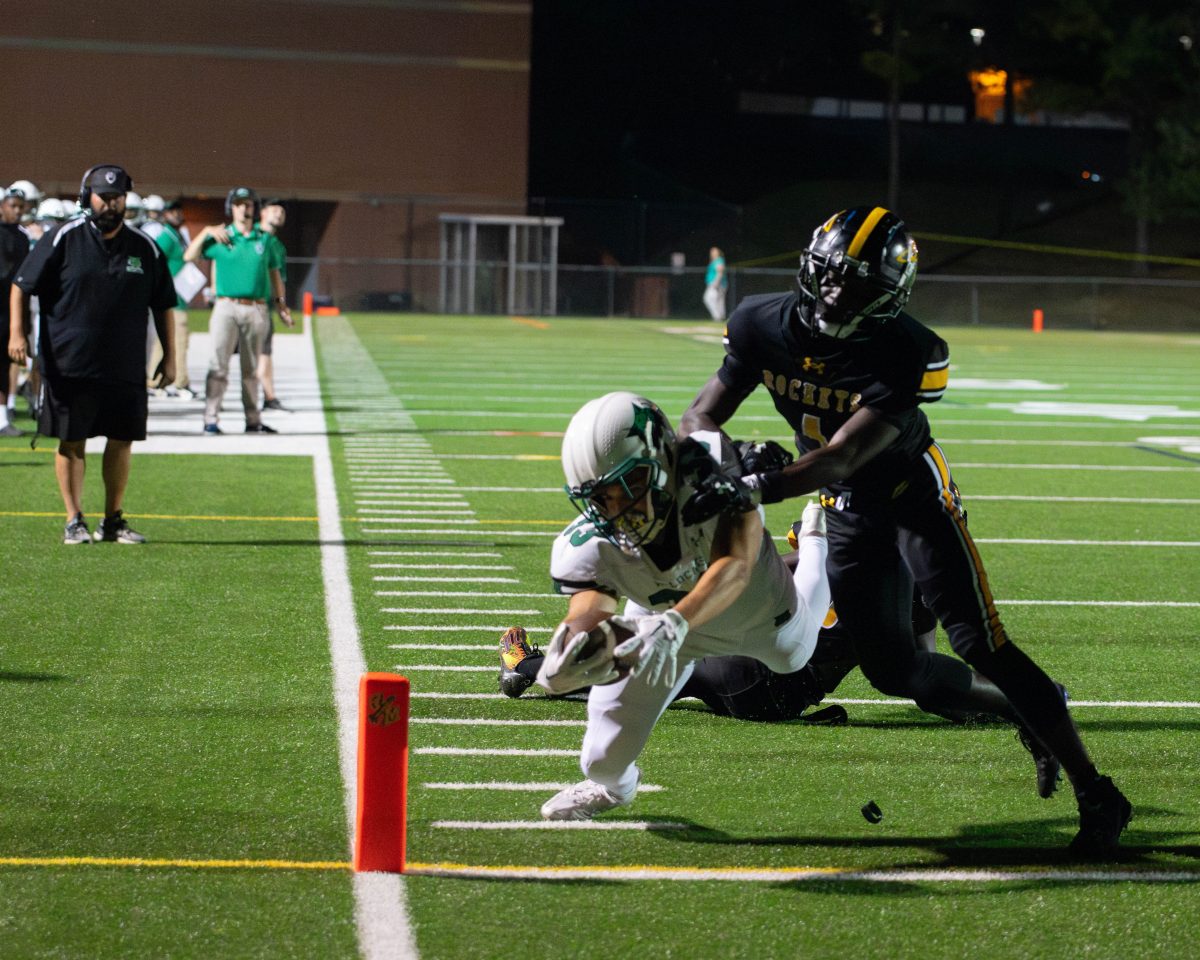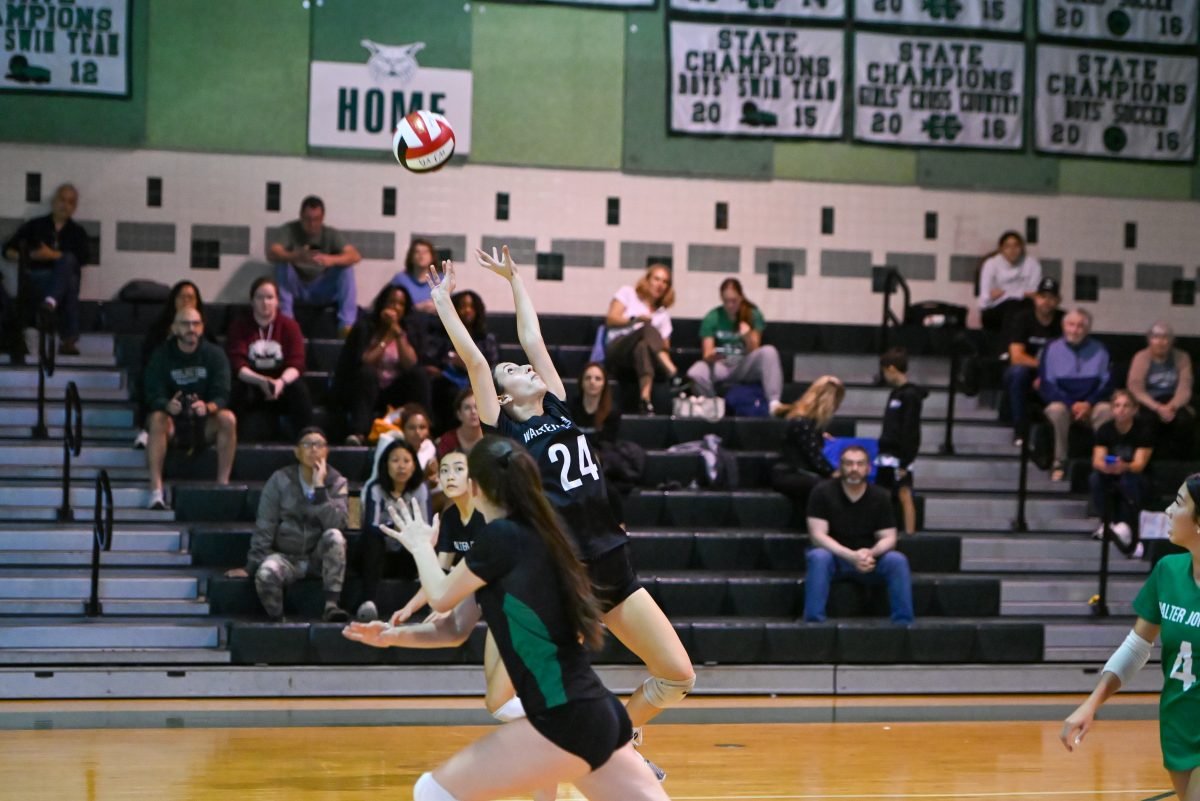On the strip, you stand en garde before the match commences. Once the ref announces to start, it’s your time to shine. One advances, and the other parries the blade as their heart beats rapidly. Back to recovery position. Next, the opponent flunges with a beat, and the attack begins. After the second parry, they strike the opponent by riposting as a means of counter-attack. Senior Karthik Shankar is committed to pursue fencing at Vassar College.
As a child, Shankar participated in sports such as soccer and tennis, but didn’t really enjoy them because of his coaches and the overall atmosphere. One day when he and his dad were running errands, they saw the fencing building and he was interested.
“I just kinda fell in love with it and here I am doing it now,” Shankar said.
During his sophomore year, he began competing. Due to Covid, he was set back as most start when they’re in middle school or ninth grade. Even though he didn’t have as much time as others, he knew he enjoyed competing and wanted to pursue it in college.
“I’ve known Karthik since elementary school, and he’s always been an incredibly hard worker, he’s never quite satisfied and constantly thinking about ways he can improve. Whenever he’s not at school, I can usually assume that he’s somewhere across the country fencing, at national tournaments or junior olympics or other super impressive events. He’s been an awesome friend and classmate and I can’t wait to see how far he goes,” senior Harry Resnik said.
Regarding the recruiting process, there’s a small population, so the division one schools reach out to you. With smaller or division three schools, fencers have to reach out to them because there are a lot of people who want to commit. What drew him to Vassar was their fencing and academic programs and how beautiful the campus is.
“At events in my age group, there are usually 350 people, so there’s not really a way to find people [commits]. You have to email the coaches with all your information and videos and such and after that, some coaches contact you to set up Zoom meetings,” Shankar said.
Fencing is different from other sports as you wear a protective mask, as well as a heavy fabric, to prevent any injury. However, just like in a singles tennis match, you face your opponent one-on-one, but come in direct contact.
Furthermore, fencing can be exhilarating as individuals have to be precise, confident and use tactics, speed and balance to win the match.
“My favorite part of fencing is not the actual competition, but right before when everyone is warming up … and we are all just having fun getting ready without having to focus our minds on the competition,” Shankar said.
Shankar usually attends four to five practices a week that consist of individual training with his coach as well as group training, with two days of open fencing for 2.5-3 hours. Group classes consist of warm-ups, stretching, footwork and drills.
“For competitions, there’s a preliminary round where it’s just against five to eight people. It’s all to five touch bouts, and then you do that as a round-robin. This means some people get the top and they get best scores with the most points and they get the top for the tableau and that tableau is a direct elimination: If you lose, you’re out. If you win, you keep on going,” Shankar said.
Being a competitive student-athlete comes with a lot of extra pressure and expectations that coaches and parents want you to meet.
“I’ve found myself getting so stressed at these competitions … It’s a learning process because it’s not like your club practice, but we are in this huge convention center with lights, screaming kids, referees walking around in suits, so it’s a different environment. I ended up going to a bunch of competitions … and we [Shankar and coaches] figured out how to breathe before everything and to make sure to focus on myself,” Shankar said.
Even though you fence against another opponent, you are a part of a close-knit environment on a fencing team and maintain close friendships with your teammates.
“Karthik is an inspiration to everyone on his fencing team. His commitment and dedication to the sport is unmatched, often missing upwards of at least 10 days of school a year for competitions like the youth Olympics. Even with those missed days, he has managed to maintain a 4.9 GPA. Not only that, but he also has taken up the mantle of being a leader by not only coaching and being a ref for local competitions but by driving his younger teammates to practice … He is a teammate that would improve any team that he is on, his goal is not just to make himself better, but everyone around him,” senior Eli Schurgin said.









